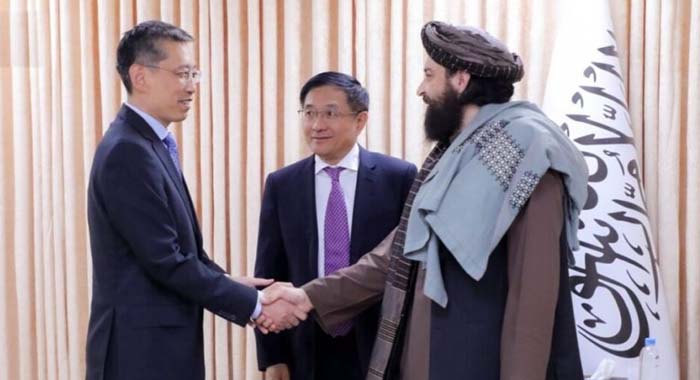Russian daily Nezavisimaya Gazeta has reported that China has extended an unexpected invitation to Mullah Mohammad Yaqoob, the Taliban’s acting defence minister, in what analysts describe as a move to evaluate the group’s military preparedness and political will to resist a potential U.S. comeback in Afghanistan.
The Moscow-based paper linked the development to recent remarks by former U.S. president Donald Trump, who suggested that Washington was considering regaining control of Afghanistan’s Bagram airbase. According to Afghan sources cited in the report, Trump views a symbolic return to Bagram as a central part of his strategy ahead of the upcoming U.S. midterm elections.
The newspaper said American envoys have been holding discreet contacts for several months with Taliban officials and Afghan politicians living in exile. While some Taliban representatives have reportedly shown openness to the idea, supreme leader Hibatullah Akhundzada is said to have taken a hard line, firmly opposing any U.S. presence in the country.
Citing unnamed sources, the report further claimed that Washington is preparing for possible special military operations in Afghanistan, exploring the deployment of several thousand U.S. soldiers along with former Afghan National Army personnel who have settled abroad since the Taliban takeover in 2021. Such a move, analysts argue, would mark a dramatic reversal of America’s withdrawal strategy and could reinsert Afghanistan into the center of global power competition.
Against this backdrop, Beijing’s invitation to Yaqoob is being interpreted as a calculated step to test the Taliban’s resolve and readiness. “China is probing whether the Taliban are militarily and politically capable of resisting an American attempt to re-establish itself in Afghanistan,” Nezavisimaya Gazeta quoted analysts as saying. Others noted that Beijing may also be seeking assurances that Afghan soil will not once again become a launchpad for instability should a new wave of U.S. operations be initiated.
The paper added that Washington’s considerations extend beyond symbolism. “The United States is not only looking at Bagram as a base, but also at reactivating networks of allied Afghan fighters abroad to strengthen its presence,” the report suggested, underscoring that Afghanistan’s future remains deeply entangled in external power rivalries.
The developments underscore how Afghanistan continues to occupy a central place in global geopolitics more than three years after the U.S. withdrawal. With Beijing testing Taliban commitments and Washington contemplating a symbolic and strategic return, Kabul once again risks becoming the epicenter of confrontation between major powers.
“Afghanistan is not only a domestic crisis but a geopolitical prize,” the Russian daily observed, warning that decisions taken in Washington, Beijing, and Kabul in the coming months could reshape the balance of power in the wider region.





